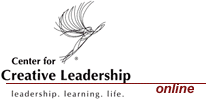Educational
Objective: The student will demonstrate a knowledge of situations
or circumstances that tend to make him react emotionally.
• Identify Need: Everyone has emotional triggers and buttons:
Teacher may personalize Complete this worksheet: Student:___________________________ As you read the following behaviors, use a scale of 1 - 5 to rate how you would usually respond to the situations described. Be honest with your answers! 1 = I don't care. 5= I think it's wrong.
Analysis: Use this assessment as a way to be honest with yourself about your reactions to certain situations. Look at the behaviors you rated highest. Why are you so intolerant? Share with your classmates. ******************************************************
*********************************************************************** Personal Rights * to have your own feelings and opinions * to be treated with respect * to be taken seriously * to be offered constructive criticism that is not intentioanally hurtful * to be shown fair consideration when making a request * to be dealth with in a fair and honest manner
Exercise: Read this excerpt from Handling Hot Points by Ancella Livers
Emotional triggers can cause behavior that creates conflict. They are the irritations and aggravations that provoke you or compel you to behave in a way that is unproductive. When a boss, colleague or direct report pushes your buttons, you may feel frustrated, angry, powerless, anxious or resentful. Such reactions affect your productivity and creativity, and can cause significant problems for you and your organization. One strategy for managing conflict is to know what kinds of situations are most likely to create conflicts for you, according to the creators of the Conflict Dynamics Profile (CDP), a tool used by CCL to help leaders understand and handle conflict. By assessing the degree to which certain behaviors or situations "set you off," you can better anticipate potential conflict and diffuse or avoid it. Everybody has different hot buttons, but typical emotional triggers are situations in which you have to work with someone whose perspectives, values or style is different from yours. For example, you may feel your blood boil when you are dealing with someone who is an abrasive "know it all." Or maybe you get most aggravated with a reserved colleague who doesn't seem open or forthcoming. Other triggers may be failing to give credit to others, unreliability, self-centeredness or negativity. There are many techniques, such as deep breathing, that allow you to stay in control of your emotions. The key is to identify your emotional triggers and recognize them in the moment. By doing so, you are more likely to check your reaction and diffuse or direct the conflict. See Also:
|



